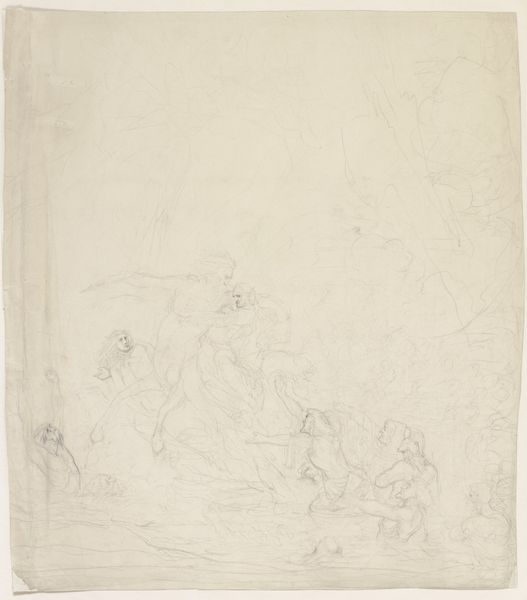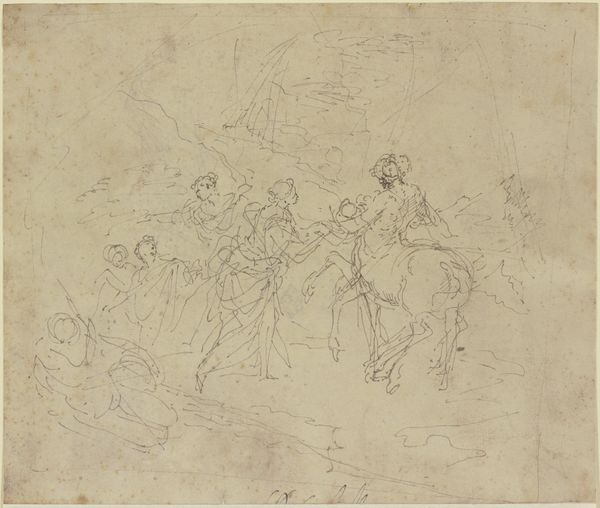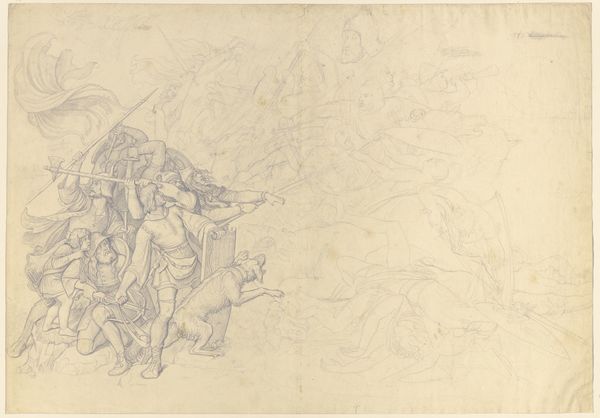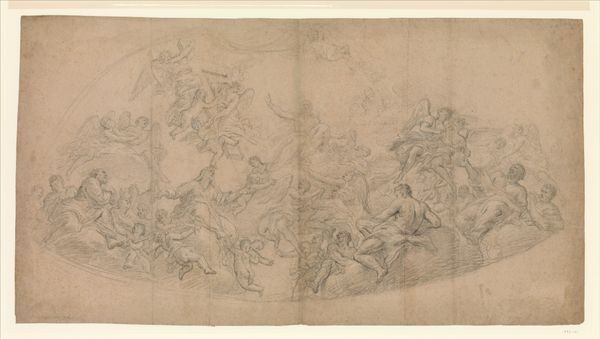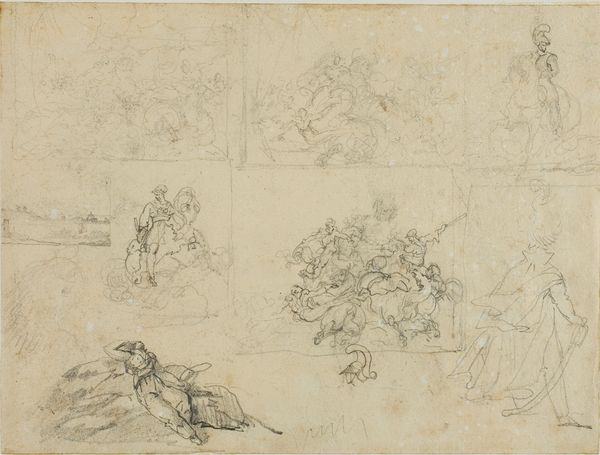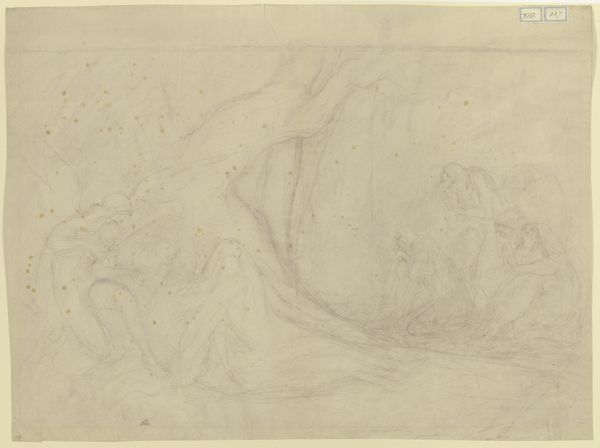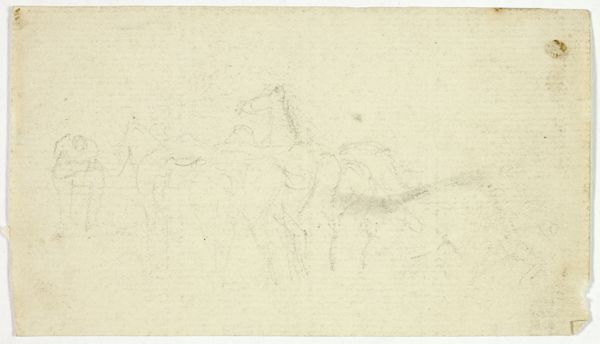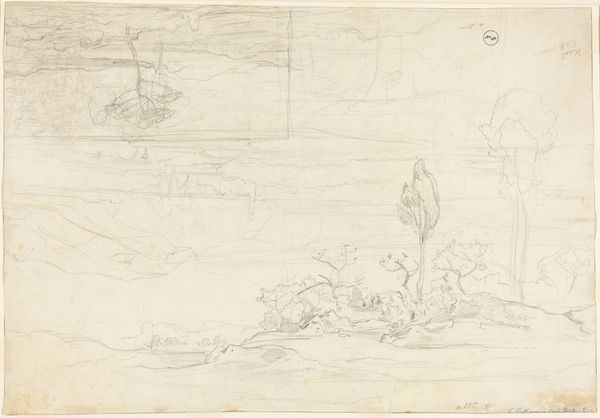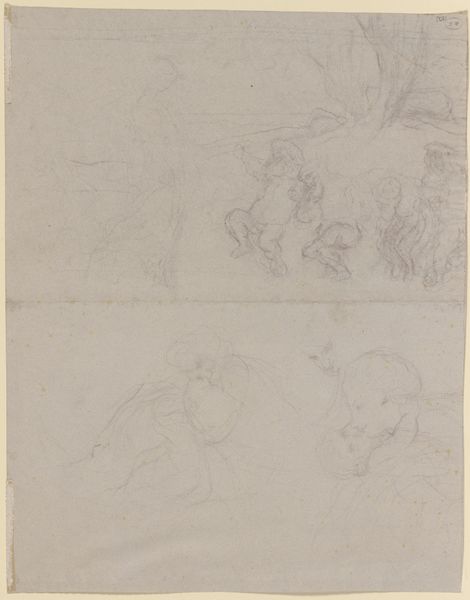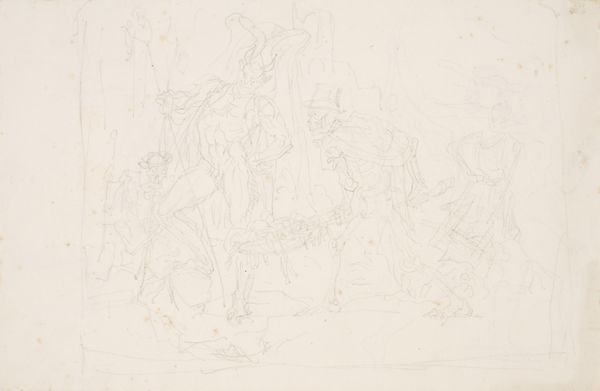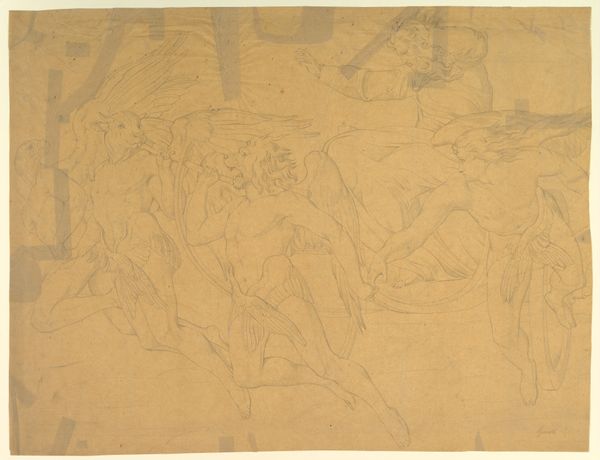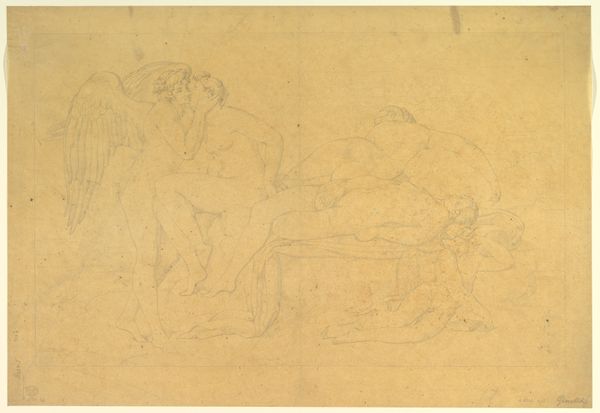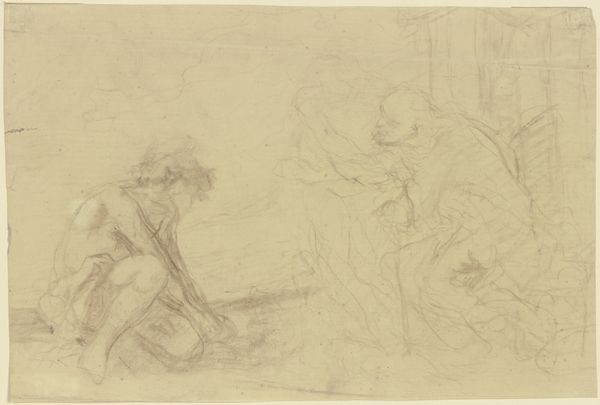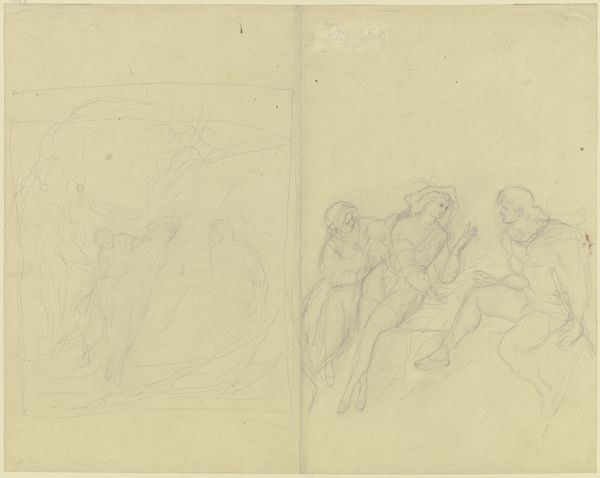
drawing, paper, dry-media, pencil, chalk
#
portrait
#
pencil drawn
#
drawing
#
classical-realism
#
figuration
#
paper
#
dry-media
#
pencil
#
chalk
#
line
#
academic-art
Copyright: Public Domain
Victor Müller produced this pen and ink drawing of dancing fauns and animals in Germany sometime in the 19th century. At the time, Germany was undergoing rapid industrialization and urbanization, leading to significant social and economic changes. The faun, a mythical creature that is part human and part goat, has been a symbol of nature and wilderness since ancient times. In 19th-century German art, depictions of such figures can be understood as a way of longing for a simpler, more natural way of life. Müller's drawing might be interpreted as a commentary on the relationship between humans and nature during a period of great transformation, even a subtle critique of the social structures of his time, yearning for a more harmonious existence. Art historians often consult primary sources, such as letters, diaries, and critical reviews, to gain a deeper understanding of the social and cultural context in which artworks were made. This helps us to interpret the meanings and intentions behind them.
Comments
No comments
Be the first to comment and join the conversation on the ultimate creative platform.
